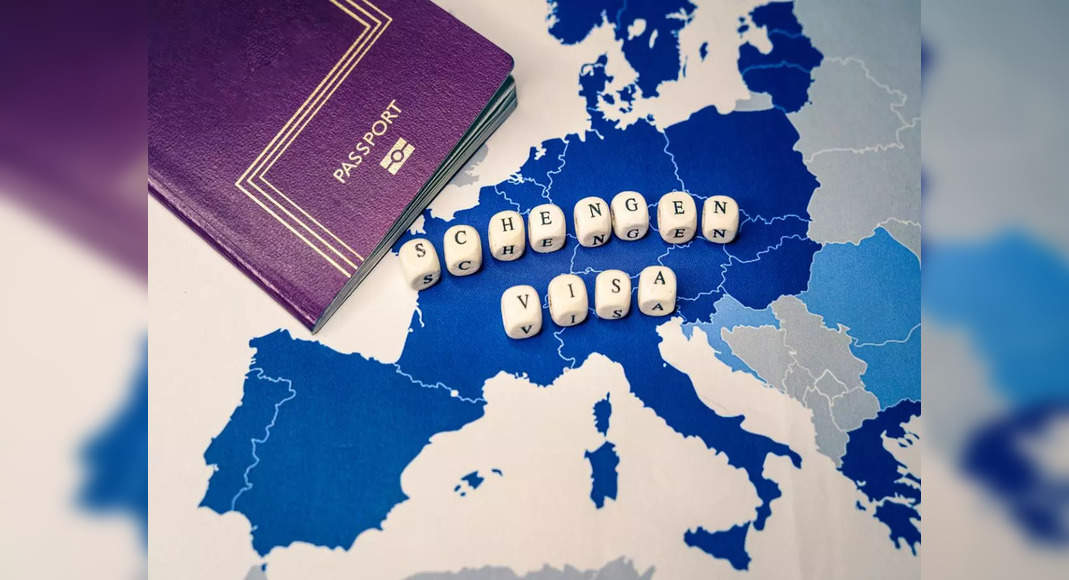Football
Supercomputer predicts Three Lions triumph at Euro 2024

As the continent’s football fans gear up for the 2024 Men’s European Championships in Germany, a supercomputer has predicted the most likely winners. According to Opta, which simulated the tournament 10,000 times with its computer, England’s national team are narrow favourites, ahead of France.
Since Gareth Southgate began his tenure as England manager in 2016, England fans have been in a strange state. One minute they are calling for Southgate’s sacking, the next they are flocking to have tattoos predicting a triumphant final – before a ball has been kicked.
The preamble to Euro 2024 has been no different, with some supporters arguing their manager should be fired before the tournament after a friendly defeat to Iceland, but simulataneously convinced that this time it really will be ‘no more years of hurt’. And into that fray, professional services and research firm Opta has thrown a new study, which may well push a few more of the famously volatile fans into tattoo artist’s chairs across the country.
Opta’s supercomputer has simulated Euro 2024 10,000 times and confirmed its pre-tournament percentages. And across every round of the competition, it has found that the Three Lions are favourites to succeed.
It’s coming home
According to the study, 70% of simulations saw the team get to at least the quarter-finals. Meanwhile, 31.1% of the simulations predicted England would fare at least as well as three years ago, when they were the latest to fall foul of the European Championships’ host-finalists curse. Like Portugal in 2004 and France in 2016 before them, they were defeated on home turf at the last hurdle.
This time, however, despite the team’s apparent lack of form heading into the tournament, Opta expects that Harry Kane and company will go one better – with 19.9% of simulations predicting that England will be the next name going on the trophy. Only France are seen as clear rivals to that honour, with Didier Deschamps’ Les Bleus having finished runners-up in the 2022 World Cup in Qatar.
According to Opta, in 19.9% of simulations, France were predicted as champions. This places them well ahead of hosts Germany, who – despite having hit a rich vein of form going into the tournament that saw Die Nationalmannschaft defeat France in Lyonn earlier in 2024 – only came out on top in 12.4% of scenarios. Meanwhile, Spain – who won consecutive championships in 2008 and 2012 – were only seen to triumph in 9.6% of simulations, possibly due to the tough group they have drawn with incumbent champions Italy and surprise qualifiers Albania.
2016 champions Portugal rounded off Opta’s top five, having prevailed in 9.2% of scenarios. Given that the team go into the tournament having been easily dispatched by Croatia – only given a 2% shot of winning – Roberto Martínez’s squad would probably take those odds. With ageing star Cristiano Ronaldo much more of a peripheral presence than in previous tournaments, the team seems short of fire-power, ahead of crunch matches with Türkiye, Czechia and Georgia.
The Netherlands and Italy were meanwhile given outside chances of winning – both winning in around 5% of simulations. On one front, this makes sense. Italy’s ageing winners have mostly been phased out from the last Euros, and their replacements are yet to fully convince. But with the Oranje having put together one of the most impressive defences in the tournament, and forward Jeremie Frimpong in electric form, following Bayer Leverkusen’s first ever Bundesliga title, they might have been slightly underestimated.
Don’t come home too soon
Scotland’s chances of winning the tournament seem remote, at 1% – though most of the Tartan Army would say you don’t need a supercomputer to know that. What matters more for Steve Clarke’s men will be getting out of their group – something Scotland’s national team has never managed at a European Championship. To that end, Opta gives the team a favourable shout of progressing. With the third-placed teams in some groups going through depending on their record, Scotland went to the last 16 phase in 58.9% of simulations, though with Germany likely to top the group, the supercomputer seems unsure of who of Hungary and Switzerland may join them in the second round. They prevailed in 59.3% and 61% of simulations respectively.
Of course, all of these predictions should probably be taken with a grain of salt. Each year, artificial intelligence and quantum computing are said to become more advanced, more accurate than ever before – crunching vast siloes of statistics in seconds to come up with analysis and predictions of all manner of business conundrums. And yet, whenever companies try to demonstrate this, by leveraging the power of technology to predict the outcome of sporting events, the results still read like the performance of England’s men’s team at international tournaments: one glowing victory amid a sea of botched operations.
Some woeful efforts to use technology to anticipate sporting outcomes have included OptaJoe forecasting Liverpool winning the Premier League in the 2022/23 season – the Reds went on to finish fifth – and Opta itself calling the African Cup of Nations earlier in 2024. Then, the supercomputer opted for the safe option of holders Senegal there, but they crashed out to eventual winners Côte d’Ivoire – who had seemed hopeless in the first round, to the extent they sacked their coach mid-tournament – in the quarter finals. For now, at least, it seems that sport is too chaotic a force to accurately predict, with or without machines. So, it’s probably best to hold off on your “England: Champions of Europe 2024” tattoos until after the final.









